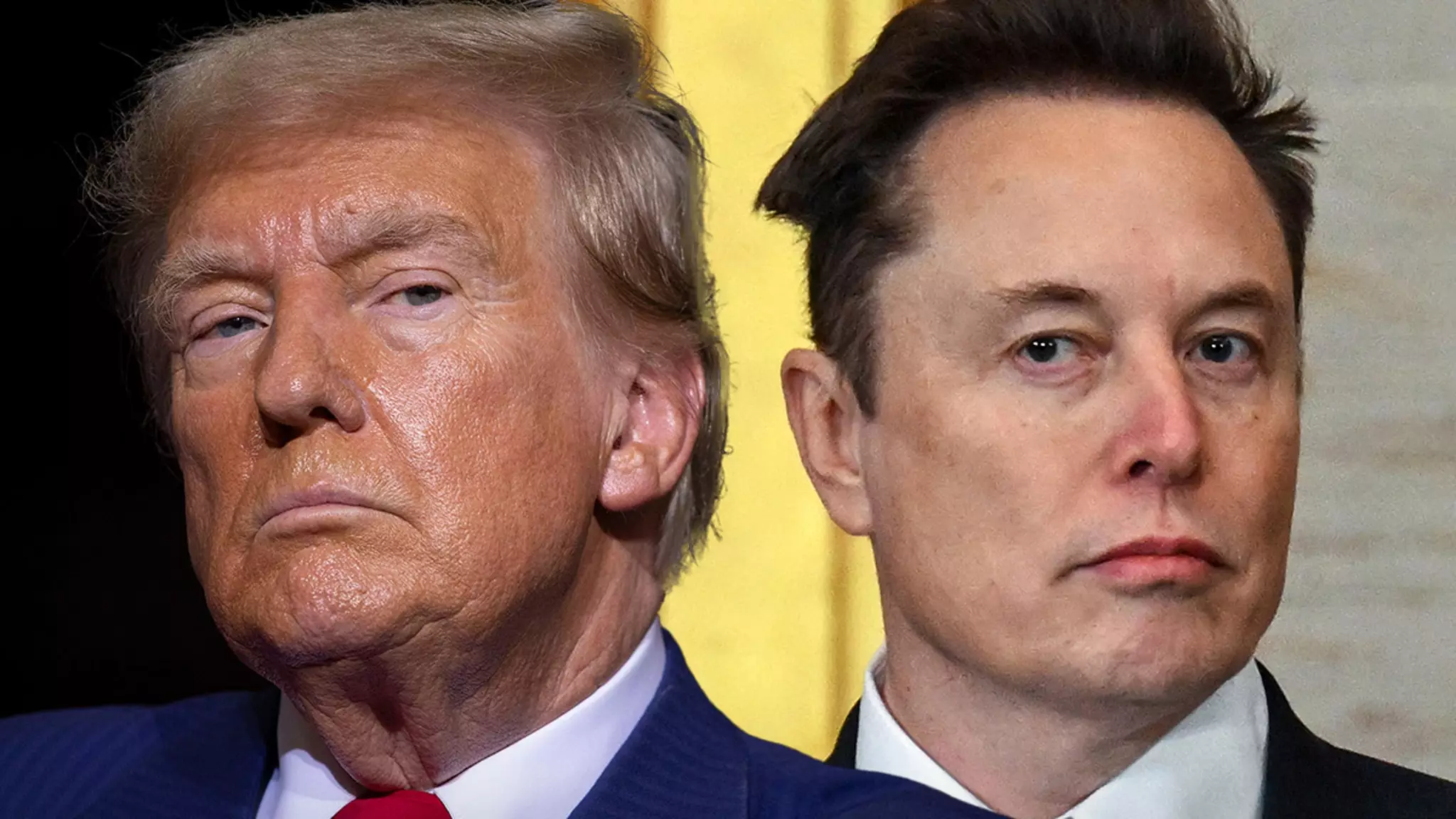In recent weeks, the confrontation between Elon Musk and Donald Trump has transcended trivial social media disputes, revealing a profound clash of personalities, ideologies, and visions for America’s future. What began as a series of petty jabs has escalated into a battle that embodies the ongoing polarization in American politics and corporate influence. It’s no longer just about tweets or policy disagreements; it’s a battle for legitimacy, control, and the narrative shaping the nation’s destiny. Musk’s strategic critiques of Trump’s policies—particularly the so-called “Big Beautiful Bill”—are emblematic of a new breed of tech entrepreneur stepping into the political arena with unapologetic boldness. Meanwhile, Trump’s aggressive retorts reflect an attempt to reassert dominance over both political discourse and the influential figures who challenge his authority.
What makes this particular face-off notable is the personal tone and the underlying power dynamics. Trump’s threat to leverage government agencies against Musk’s ventures reveals an unsettled desire to maintain influence over the technological and economic future of the country. Musk, on the other hand, exhibits a willingness to defy political powerhouses, even if it risks public backlash. This combat isn’t just about policies or subsidies; it’s an ideological struggle over what kind of leadership and innovation are deemed valuable. More critically, it underscores the fragility of alliances and the volatility of influence in a landscape where technology, politics, and media collide with unpredictable intensity.
The Narrative of Subsidies and Nationalism: A Battle for Economic Identity
At the heart of Musk and Trump’s conflict lies a fundamental debate around economic dependency, patriotism, and the future of American competitiveness. Trump’s explicit criticism of Musk’s reliance on government subsidies—claiming Musk would “probably have to close up shop” without them—serves a broader political narrative. It’s an appeal to nationalist sentiments, suggesting that private enterprise must stand on its own two feet, free from the crutches of government support. This stance appeals to conservative ideals of self-reliance, but it also conveniently ignores the reality of modern capitalism, where government incentives often accelerate innovation and job creation.
Conversely, Musk’s response to Trump’s rhetoric reveals a subtle critique of political rhetoric itself. Musk’s warning about the “Big Beautiful Bill,” which he views as a misguided policy that would harm economic growth, paints him as a defender of innovation over protectionism and shortsighted fiscal policies. His mention of “immense strategic harm” and the exaggerated figure of a $5 trillion deficit increase serves to highlight his belief that government intervention should facilitate, not hinder, technological progress. Additionally, Elon’s flirtation with the idea of creating a new political faction indicates he perceives the existing political framework as inadequate or corrupt—an entrepreneurial mindset applied to the political realm. This clash points to an evolving narrative: business leaders increasingly see themselves not just as innovators but as political actors capable of reshaping policies and ideologies.
The Personalities as Archetypes of America’s Future
The fiery exchanges between Trump and Musk shape into a symbolic duel—each representing contrasting visions for America’s future. Trump embodies nationalistic populism, emphasizing traditional industries, sovereignty, and skepticism of technological giants. His threats to leverage government power reflect a desire to control and manipulate the existing systems for political advantage. Elon Musk, by contrast, epitomizes a globalized, tech-driven futurism that champions innovation, entrepreneurship, and disruption. His dismissive attitude towards the bill and support for alternative political strategies reveal his growing influence as a new kind of power broker.
Interestingly, Musk’s willingness to publicly criticize Trump and threaten to form a new political party—if that’s what it takes—signals his belief that the current political system is broken. It also suggests that rising tech leaders are no longer content to stay in the background; they intend to wield influence actively. For Musk, this isn’t just about defending his business interests but about shaping the ideological landscape surrounding innovation, free enterprise, and America’s global competitiveness.
Meanwhile, Trump’s dismissiveness of Musk’s influence—claiming he’s “not a worry”—underscores his belief that political and economic power still resides predominantly within traditional political channels. Yet, recent exchanges suggest that Musk’s star is ascending, and his willingness to challenge Trump publicly might be indicative of a shifting balance of influence, where entrepreneurs can wield politico-cultural clout as much as politicians themselves.
This feud encapsulates more than just a disagreement between two prominent figures; it is a reflection of the rift dividing America itself. Will the nation lean into the entrepreneurial disruptors innovating beyond politics, or will it retreat into nostalgic nationalism and protectionism? Both Musk and Trump—each in their way—are vying for control of America’s identity in an age of rapid technological change and political upheaval. Their battle illuminates the underlying tensions between progress and tradition, global influence and national sovereignty, innovation and regulation. Whichever side ultimately gains the upper hand could fundamentally shape the ideological and economic landscape that future generations will inherit.

